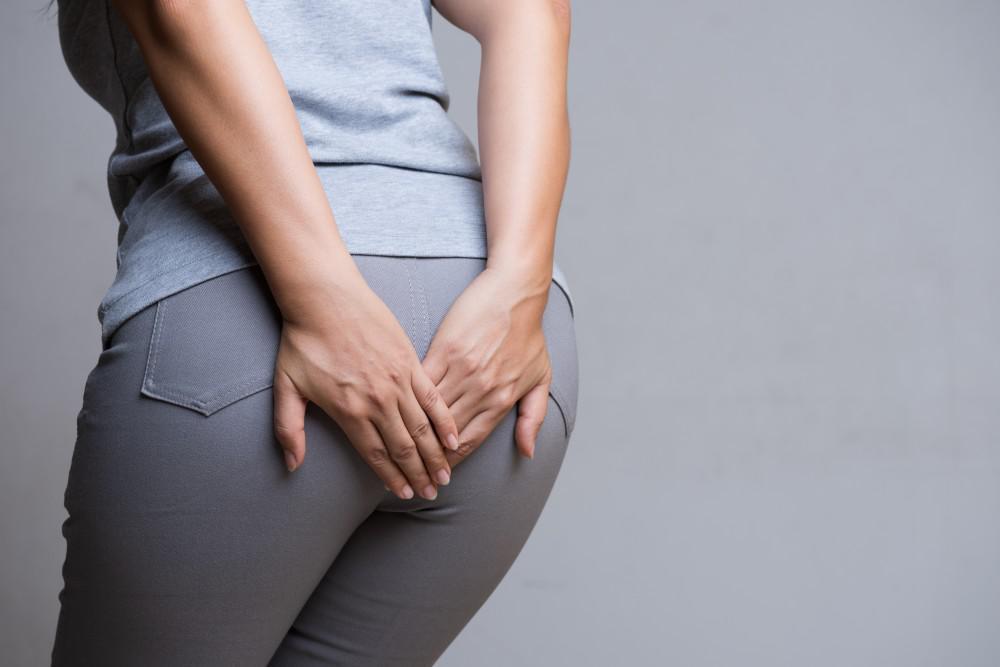
Anal itching, also known as pruritus ani, is a common condition characterized by persistent itching and irritation in the area around the anus. While it can be uncomfortable and embarrassing to discuss, it’s essential to understand the causes, symptoms, and available treatment options to alleviate the discomfort and prevent further complications.
Overview
Anal itching, or pruritus ani, refers to the itching and irritation experienced in the anal region. It can range from mild and occasional to severe and persistent. While it may seem like a minor annoyance, anal itching can significantly impact an individual’s quality of life. In this article, we will explore the causes, symptoms, and treatment options for anal itching, along with preventive measures and guidance on when to seek medical attention.
READ THIS NEXT: 10 Foods That Can Help You Grow A Bigger Butt Naturally
Understanding the Causes of Anal Itching
Poor hygiene and excessive moisture
Maintaining proper hygiene in the anal area is crucial to prevent irritation and itching. Inadequate cleaning, excessive moisture, or the use of harsh soaps or wipes can disrupt the natural balance of the skin, leading to itching.
Skin conditions and allergies
Skin conditions such as eczema, psoriasis, or contact dermatitis can affect the anal region and cause itching. Allergies to certain substances, such as fragrances or chemicals in soaps, lotions, or toilet paper, can also trigger anal itching.
Dietary factors
Consuming certain foods, particularly those high in spice, caffeine, or alcohol, can aggravate anal itching. Additionally, an imbalanced diet lacking in fiber may result in constipation, straining during bowel movements, and subsequent irritation.
Infections and parasites
Certain infections, such as yeast infections or sexually transmitted infections (STIs), can cause anal itching. Parasitic infections, such as pinworms or lice, can also lead to persistent itching in the anal area.
Symptoms and Diagnosis of Anal Itching
The symptoms of anal itching may vary from person to person, but common indications include:
- Intense itching around the anus
- Irritation, redness, or inflammation
- Burning or stinging sensation
- Discomfort or pain
- Presence of a rash or bumps
If you experience persistent or severe symptoms, it is important to seek medical advice. A healthcare professional can evaluate your condition, conduct a physical examination, and may recommend further diagnostic procedures such as:
- Visual examination of the affected area
- Skin swabs or scrapings to check for infections
- Allergy testing to identify potential triggers
- Stool sample analysis to rule out parasitic infections
Treatment Options for Anal Itching
Effective treatment of anal itching involves addressing the underlying cause. Here are some common treatment options:
Self-care measures
- Keep the anal area clean by gently washing with mild soap and water after bowel movements.
- Pat the area dry with a soft towel or use a hairdryer on a cool setting to ensure it is completely dry.
- Avoid scratching or rubbing the affected area, as it can worsen irritation.
- Use unscented, soft toilet paper or consider using moist wipes for gentle cleansing.
- Avoid using harsh soaps, perfumed products, or products containing alcohol in the anal area.
Over-the-counter remedies
- Topical creams or ointments containing hydrocortisone can help relieve itching and inflammation.
- Calamine lotion or creams with cooling agents like menthol can provide temporary relief.
- Antihistamine creams or oral antihistamines can help reduce itching caused by allergies.
Prescription medications
- In cases where over-the-counter remedies are not effective, a healthcare professional may prescribe stronger topical corticosteroids or immunomodulators.
- Antifungal medications may be prescribed for fungal infections.
- In cases of bacterial infections, antibiotics may be necessary.
Lifestyle changes
- Maintain a healthy and balanced diet rich in fiber to prevent constipation and straining during bowel movements.
- Stay hydrated and drink an adequate amount of water daily.
- Avoid excessive caffeine and alcohol consumption.
- Practice stress management techniques, as stress can exacerbate symptoms.
Prevention and Management of Anal Itching
Preventing anal itching involves adopting healthy habits and making lifestyle modifications:
Proper hygiene practices
- Clean the anal area gently after bowel movements using mild soap and water or unscented wipes.
- Dry the area thoroughly by patting or using a hairdryer on a cool setting.
- Avoid using harsh soaps, fragrances, or irritating substances in the anal area.
Diet and lifestyle modifications
- Consume a diet rich in fiber to maintain regular bowel movements and prevent constipation.
- Stay hydrated by drinking an adequate amount of water throughout the day.
- Limit the consumption of spicy foods, caffeine, and alcohol, as they can exacerbate itching.
Avoiding irritants and allergens
- Choose fragrance-free and hypoallergenic products for personal hygiene, including toilet paper, soaps, and laundry detergents.
- Avoid direct contact with potential irritants, such as harsh chemicals or perfumed products.
Regular medical check-ups
- Regularly visit a healthcare professional for routine check-ups to monitor and manage any underlying conditions that may contribute to anal itching.
When to Seek Medical Attention
While occasional anal itching can be managed with self-care measures, it is important to seek medical attention under certain circumstances:
- If the symptoms persist or worsen despite self-care efforts and over-the-counter remedies.
- If anal itching recurs frequently, affecting your daily life and overall well-being.
- If the itching is accompanied by bleeding, discharge, or pain.
- If you notice any unusual changes in the skin around the anus, such as lumps, ulcers, or sores.
- If you suspect a possible infection, such as a sexually transmitted infection (STI).
- If you have a compromised immune system or underlying medical conditions that may require specialized care.
Seeking medical advice will help identify the underlying cause of anal itching and ensure appropriate treatment.
A doctor answers frequently asked questions about Anal itching
Do people often come to the consultation hour with itching of their anus?
Itching is common. However, people often wait a long time before they go to the doctor with it. It’s a taboo. People are ashamed because they think it’s weird or dirty. For a general practitioner, no complaint is too strange. So never let shame be a reason not to go to the doctor.”
What causes itching?
“It can have several causes. In small children, itching can indicate worms. They end up in the intestines because children put everything in their mouths. In adults, it is much more often a fungus in the buttock seam.”
A fungus? That sounds unhygienic!
“Fungi live everywhere on our bodies. In principle, you will not be bothered by that. You only suffer from it when it penetrates your skin. Then an infection develops. Just think of swimmer’s eczema on your feet. That fungal infection can also occur in the armpits or groin. And therefore also around the anus.”
How does swimmer’s eczema form in your buttock seam?
“Because the environment of the anus often remains moist. For example, by not drying properly, using damp toilet paper, sweating or underwear that does not ventilate enough. Because it remains moist, the skin around the anus becomes irritated. As a result, the fungus gets into your skin and then it starts to itch.”
Do you have to go to the doctor with itching?
“Not directly. First take a look yourself with a mirror. Many people find that dirty and weird, but please get over that trepidation: it’s your own body. Is the skin around the anus or your butt crack red, irritated or scaly? Then first lubricate for a few days with antifungal cream. You just buy it at the drugstore. Do you have a wound? Use petroleum jelly for that.”
“Doesn’t the itch go away? Then something else may be going on. Then contact your doctor.”
How can you prevent itching?
“Make sure you dry yourself well after showering and after using damp toilet paper. Do not sit all day long, but also move. And preferably do not wear synthetic underwear. That doesn’t breathe. Cotton does.”
Conclusion
Anal itching, or pruritus ani, can be a distressing condition that significantly affects a person’s comfort and quality of life. Understanding the causes, symptoms, and treatment options for anal itching is crucial in managing the condition effectively. By adopting proper hygiene practices, making lifestyle modifications, and seeking medical attention when necessary, individuals can find relief from anal itching and prevent its recurrence.










